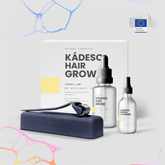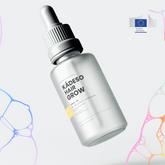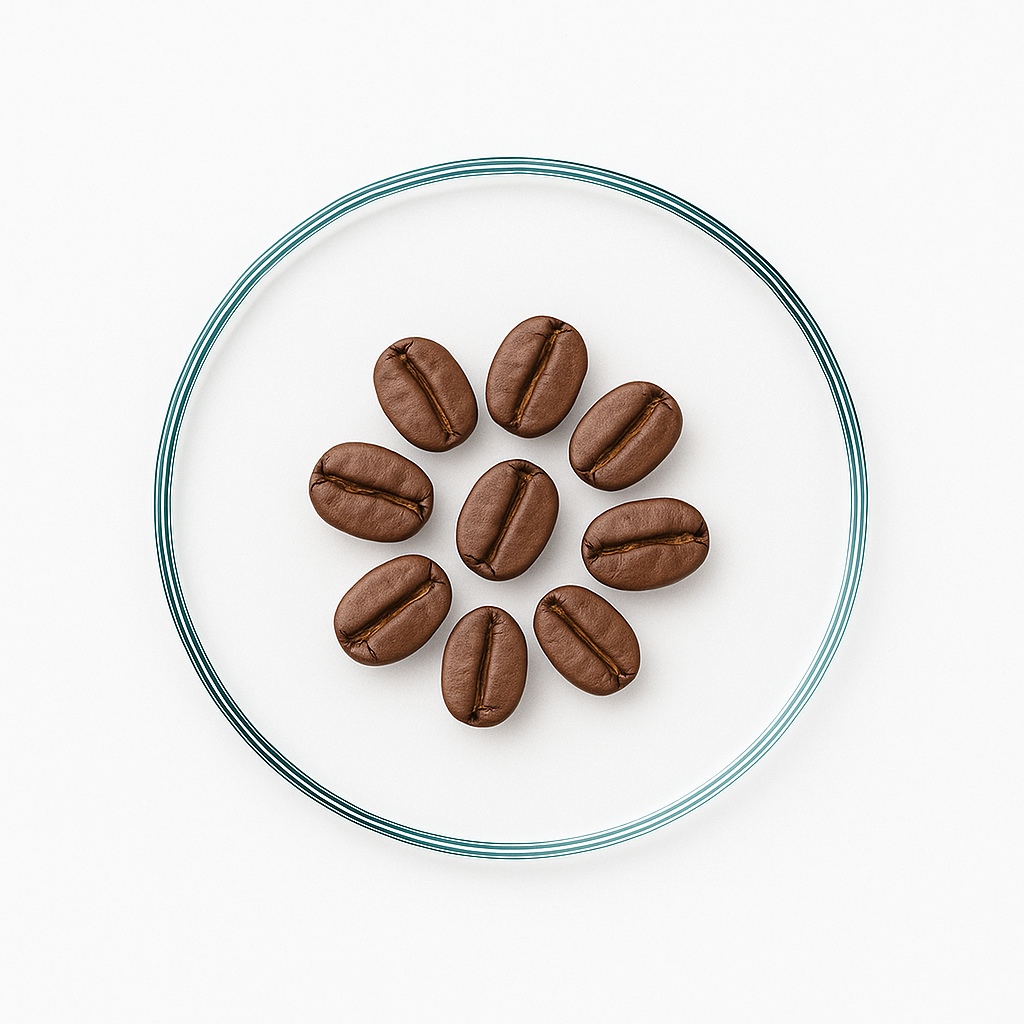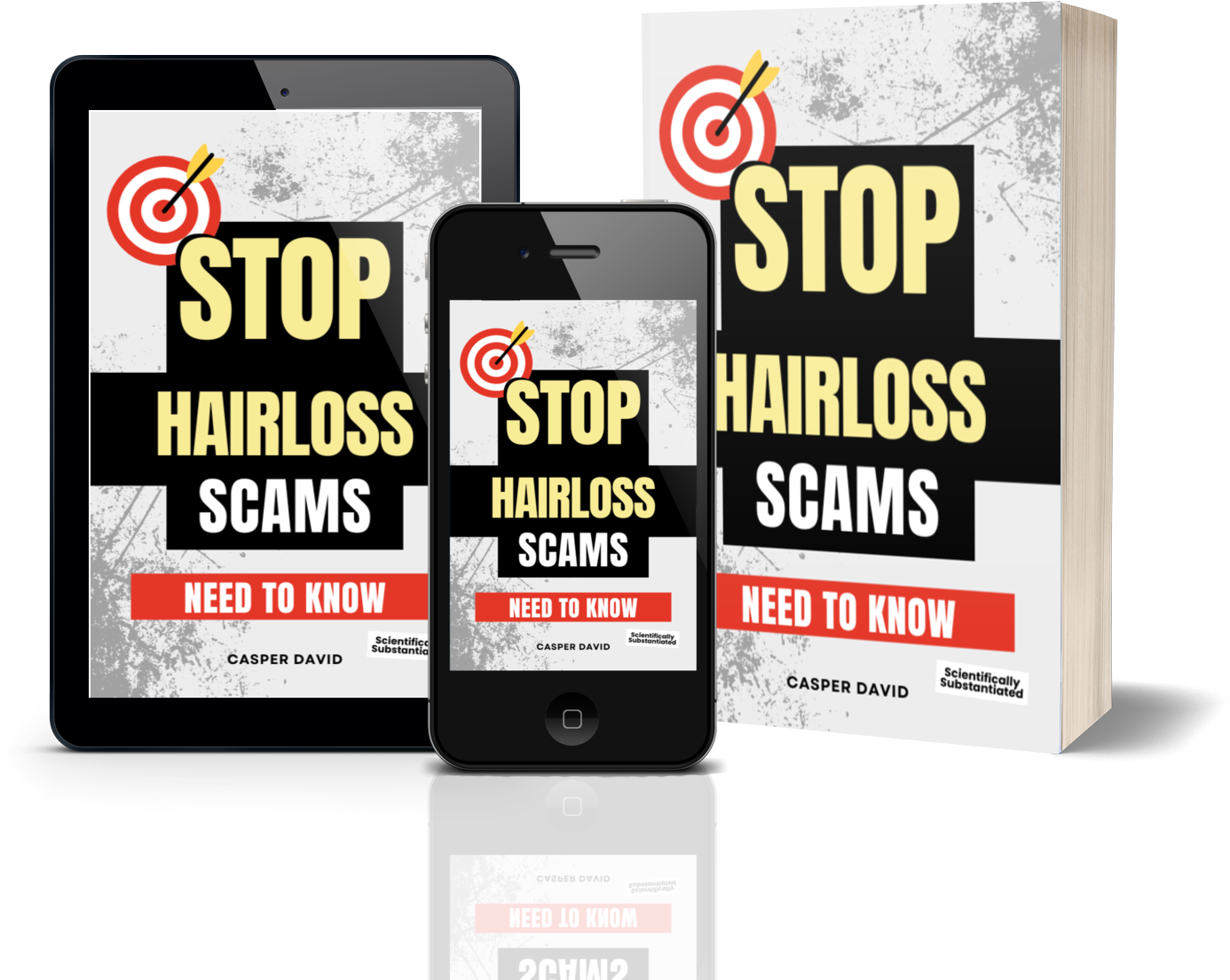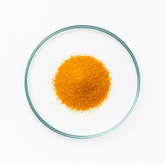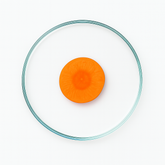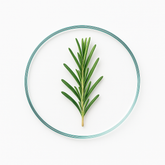Caffeine & Hairloss
Bullsh*t or not?
Let’s find out. We’re checking every claim, one by one.
To save you time, we’ve added screenshots of the most important study results.
You’ll find all sources at the bottom of this article.
There’s a lot of talk about caffeine for hair growth — and here’s why:
✅ Results comparable to Minoxidil (but without the side effects)
✅ Extends the growth phase of your hair
✅ Protects hair follicles from DHT — the #1 hair killer
Sounds good — but does it actually work?
What does caffeine really do for your hair?
You know it as a morning energy boost.
But on your scalp? It does something completely different:
✔ Neutralizes the effect of DHT
DHT shrinks your hair follicles. Caffeine helps stop that process. (Fischer et al., 2007)
✔ Extends the growth phase
Your hair stays in the growth cycle longer before falling out.
✔ Boosts cell activity in your follicles
More IGF-1 = more hair growth. (Fischer et al., 2014)
✔ Improves blood flow to your scalp
Which means stronger, healthier hair follicles.
What does the science say?
📌 2007 – Lab test on human hair follicles
Caffeine stimulates hair growth. Which may have a important impact on people with Androgenetic Alopecia (hereditary baldness)

📌 2014 – Growth factors and cell stimulation
Shampoos with caffeine can help reduce hair loss.

📌 2018 – Caffeine vs. Minoxidil
0.2% caffeine was tested against 5% minoxidil.
After 6 months: similar regrowth results.

How should you actually use caffeine?
Drinking coffee? Nope.
You’d need crazy amounts to reach your scalp — and you’d crash long before you grew new hair.
What does work?
👉 A leave-in caffeine serum — so it actually stays on your scalp
👉 Combine it with DHT blockers — like saw palmetto or Capilia Longa stemcells.
What about caffeine shampoo?
You won't get the maximum effect, because you wash it out. It needs some time to properly absorb into the scalp.
Verdict: does caffeine work?
✅ Yes. There’s solid science showing that caffeine helps reduce hair loss —
especially when applied topically and combined with other proven ingredients.
Our take?
Caffeine works — but only when used properly. Not from your coffee mug, but directly on your scalp.
And ideally with natural DHT blockers like saw palmetto.
💡 Pro tip: Our very own KÁDESO Grow Serum has all of this. No fluff. Just ingredients that actually work.
➡️ Want to try it yourself? At least you’ll know you’re using something backed by real science.
Sources
-
Fischer et al. (2007) – Caffeine counteracts testosterone’s effect on hair follicles
Caffeine blocked testosterone-induced growth suppression and helped restart hair growth. -
Klenk et al. (2018) – 0.2% caffeine vs. 5% Minoxidil in men with hair loss
Result: caffeine was just as effective as Minoxidil. -
Zhou et al. (2023) – Caffeine and adenosine shampoo study
Showed increased hair density and reduced hair loss after 3 months of use.
